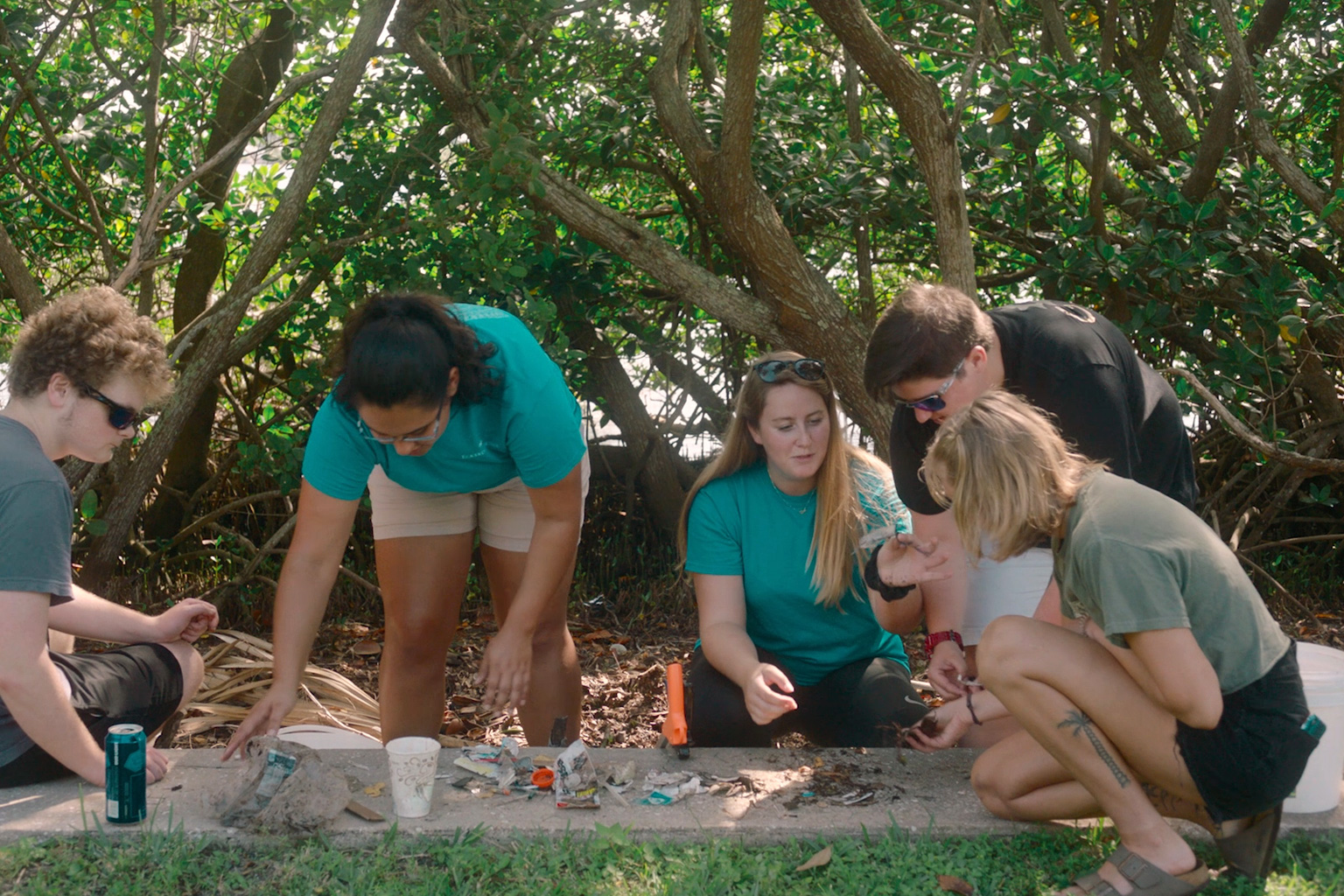
Both institutions receive nearly $150,000 for single-use plastic reduction study.
A radical campus reformation that began two years ago when a small band of Eckerd College faculty and staff received a grant targeted toward reducing plastic in the marine environment will expand to the University of North Florida this fall thanks to a new two-year $150,000 matching grant from the National Oceanic and Atmospheric Administration Marine Debris Program (NOAA-MDP).
“Eckerd College shares NOAA’s commitment to finding solutions to effect change and improve stewardship of our limited natural resources, and the awarding of the grant to continue and expand the scope of this research to include another coastal institution is testament to the value and quality of our faculty’s work thus far,” said Eckerd College President Damián J. Fernández, Ph.D. “I am proud of the persistence of this team and look forward to their progress and continued leadership in this critical area of inquiry.”
The new grant titled “Toward Sustainable Campuses—Individual Accountability in Single-Use Plastic Reduction Campaigns” will expand Eckerd College’s efforts to change individual single-use plastic consumption behaviors through education, outreach and challenge events by adding a personal tracking mechanism via a mobile phone application. Data collected from the app as well as student and community surveys will be used to further NOAA-MDP’s understanding of single-use plastic consumption on university campuses.
U.S. Congressman Charlie Crist (D-FL 13) has supported Eckerd College’s efforts since it received its first prevention grant from NOAA in 2018. “Single-use plastics are a hazard to our coastal wildlife and environment,” said Crist. “This $150,000 grant to the great minds at Eckerd College will enable them to continue their efforts to reduce the use single-use plastics and move Tampa Bay toward a greener, more sustainable future.”
Professor of Biology and Marine Science Shannon Gowans, Assistant Professor of Marine Science Amy Siuda and Director of Sustainability Evan Bollier ʼ11 received the first grant of $115,124 in 2018 and used the funds to begin Reduce Single-Use Eckerd College, which engaged the Eckerd campus community in plastic reduction challenges, educational events, surveys, and behavior change monitoring. Students, faculty and staff were provided with some reusable items—including tumblers, straws, cutlery, plates and bags—and a resource website with tips and recipes to cut down on common single-use plastic items. The positive pressure extended to the College’s dining services provider, which worked to reduce its single-use plastic by converting to bamboo carry-out utensils in cafeterias, paper straws, and paper and reusable cups. Campus vendors stopped providing plastic bags. And in November 2019, Eckerd College administration and student government signed a “Break Free from Plastic” pledge that prohibited the use of College funds to purchase nonessential single-use plastics.
Success enabled the team to push further by applying for a new grant with additional co-principal investigators Eckerd faculty Kelly Debure, Ph.D, professor of computer science, and Jesse Sherry, Ph.D., assistant professor of environmental studies; and UNF researchers Erin Largo-Wright, Ph.D., a public health professor, and Heather Barnes Truelove, Ph.D., associate professor of psychology. James W. Taylor, UNF’s Environmental Center assistant director, will also support and facilitate the research team and cultivate student involvement.
The differences between UNF’s demographics and Eckerd College’s will add substantive data to the grant project’s findings. While Eckerd enrolls fewer than 2,000 students, 79% from outside of Florida and 19% of which are students of color, UNF’s student population of more than 17,000 is overwhelmingly regional (92% Floridian) and has 34% students of color.
“Although UNF values environmental protection and sits among a nature preserve, the campus is farther from the ocean and has had less academic environmental programming historically,” according to Siuda. “UNF students are less focused on marine sciences, with environmental studies available only as a minor, not as a formal major. Thus, replicating results from Eckerd to UNF allows for increased confidence in the generalizability of the project results.”
Education and outreach will pointedly focus on first-year students at both institutions, because they are joining the consumer market and making independent purchase decisions for the first time.












